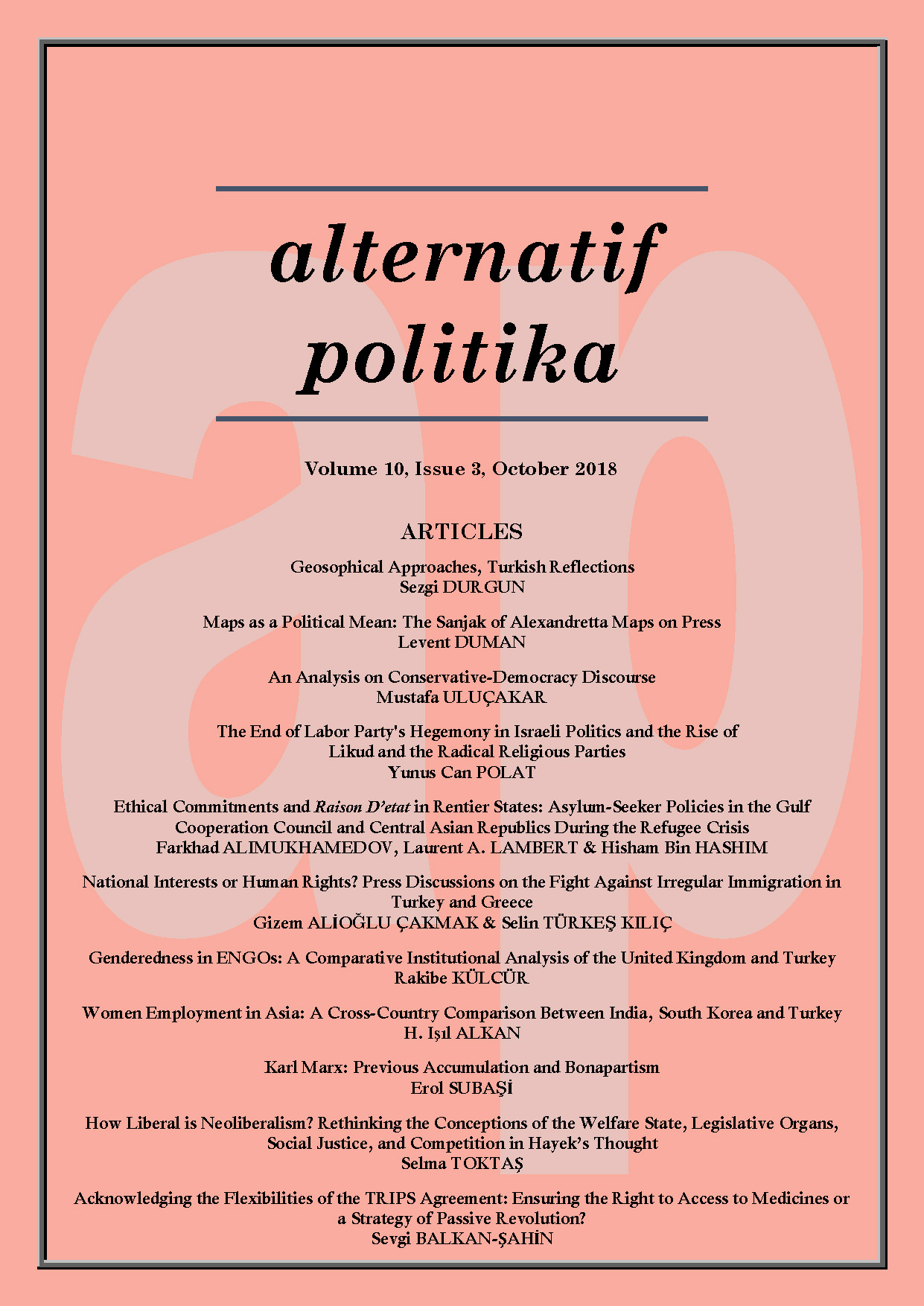GENDEREDNESS IN ENGOs: A COMPARATIVE INSTITUTIONAL ANALYSIS OF THE UNITED KINGDOM AND TURKEY
GENDEREDNESS IN ENGOs: A COMPARATIVE INSTITUTIONAL ANALYSIS OF THE UNITED KINGDOM AND TURKEY
Author(s): Rakibe KÜLCÜRSubject(s): Gender Studies, Labor relations, Comparative politics, Evaluation research
Published by: Rasim Özgür DÖNMEZ
Keywords: Environmental Non-Governmental Organisations (ENGOs); Gender; Senior Managers; United Kingdom; Turkey;
Summary/Abstract: This paper analyses the gendered organisational practices of Environmental Non-Governmental Organisations (ENGOs) in the United Kingdom (UK) and Turkey and the possible outcomes of these practices on gender compositions in senior roles. Since gender is an important element in organisations, it is expected to have implications for policies of ENGOs. The research on which this paper is based was undertaken as part of a Ph.D. which examined the gendered nature of ENGOs in Turkey and the UK. The research revealed how and why ENGOs are gendered especially in positions of power and influence. This is an important question because of pressure groups’ influence on environmental decision-making, and yet it has largely been neglected until now. This research revealed that while the ENGO sector is dominated by young single middle-class female employees, white, middle class men are in charge of the decision-making. It showed that the ENGOs reflect the rest of the society and its dominant patriarchal values. The research concluded that gender-biased working practices such as culture of long working hours, lack of formal recruitment and promotion procedures and short-term contract work relations limit career progression of women. This is due to the gendered roles and the traditional division of work in society (the gender division of labour), where triple workload of women remains invisible as a result of patriarchal and capitalist relations existing in both societies.
Journal: Alternatif Politika
- Issue Year: 10/2018
- Issue No: 3
- Page Range: 457-483
- Page Count: 27
- Language: English

